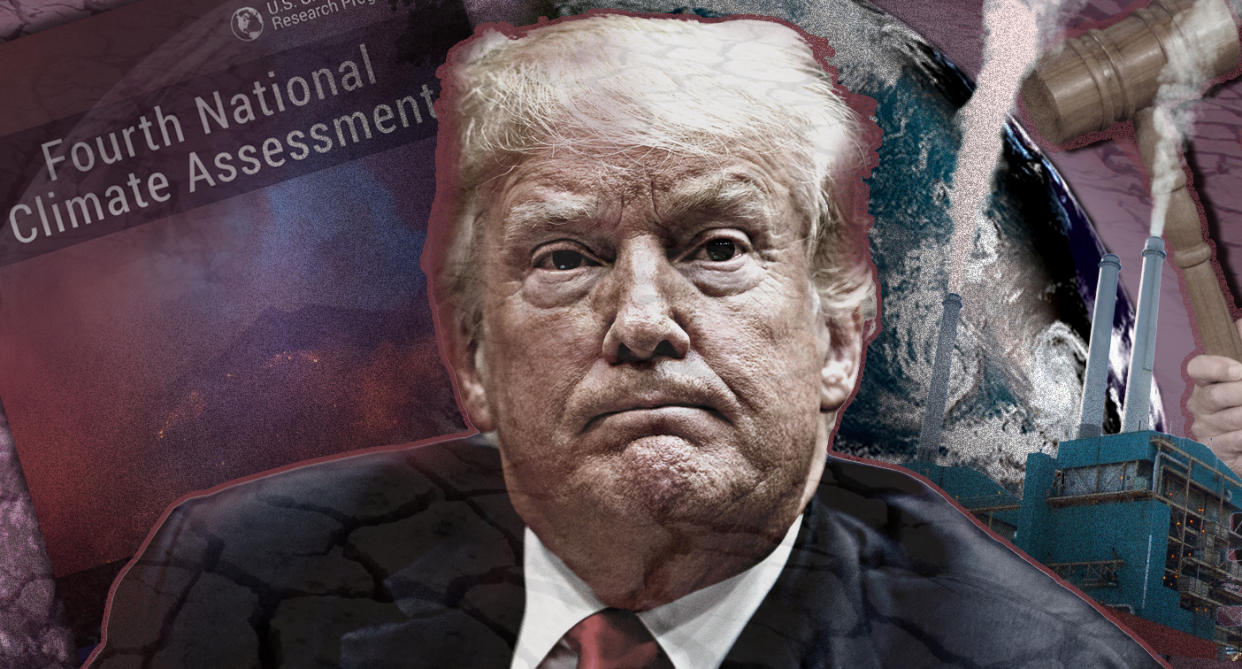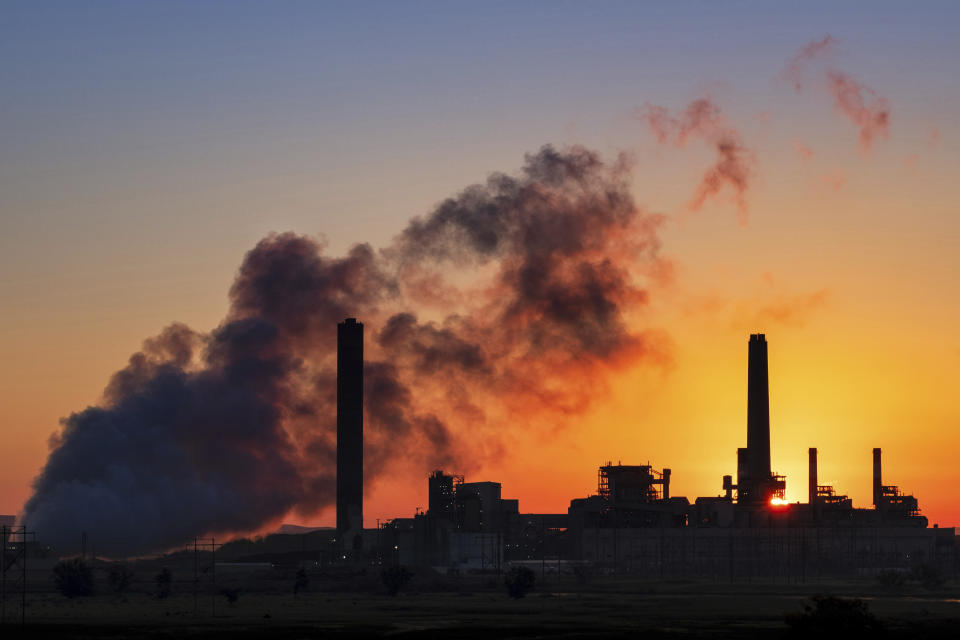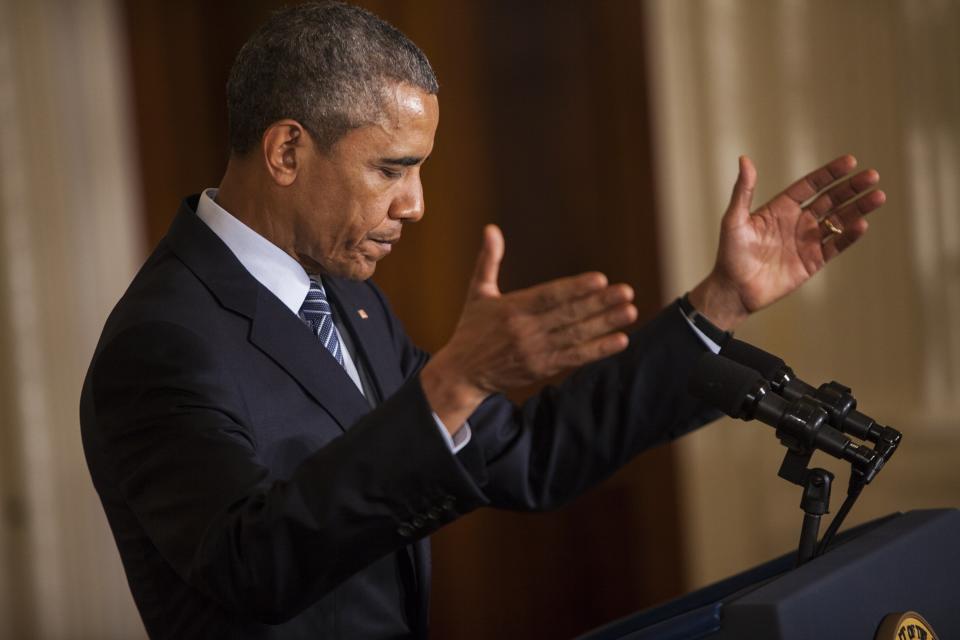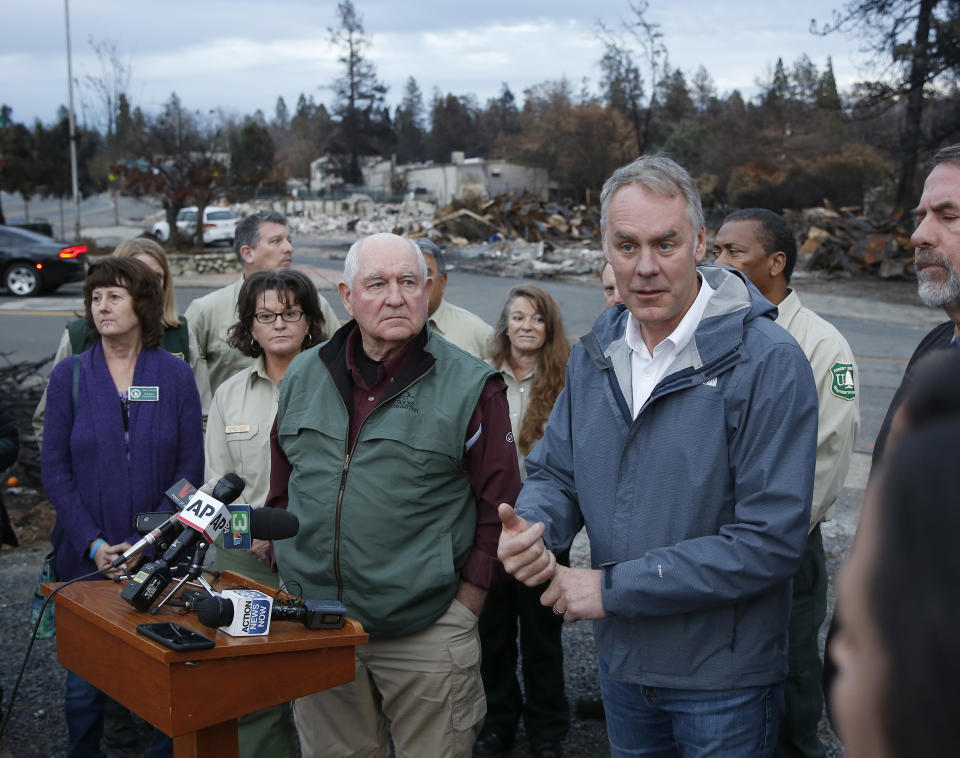Climate change report could pose court problems for Trump's deregulation agenda

The recommendations of the White House’s legally mandated climate report stand in direct opposition to President Trump’s mission to roll back environmental protections and revive the fossil fuel industry. The scientific assessment — which details precisely how the warming climate will wreak havoc on American infrastructure, public health and the economy (erasing up to 10 percent of the GDP by the century’s end) — may not stop Trump from dismissing climate science in public but it poses potential legal problems for the administration, experts say.
Ken Kimmell, the president of Union of Concerned Scientists, thinks the report will have a significant impact on existing and future lawsuits that challenge the Trump administration’s efforts to overturn Obama-era environmental regulations — most notably the Clean Power Plan, fuel economy standards and methane regulations.
“I think the overarching problem the Trump administration will have in defending any of these rules individually or collectively is that they absolutely fly in the face of the very specific, sobering warnings that 13 federal agencies have given us in the form of this National Climate Assessment,” Kimmell told Yahoo News. “It is going to appear to any fair-minded judge looking at this objectively that the Trump administration is completely ignoring the science and abdicating its duty.”
Dan Bodansky, a law professor at Arizona State University and a leading climate change expert, said the provenance of the climate report is significant. The administration is effectively acknowledging the harm caused by its own policies, Bodansky said, adding that while Trump might be able to ignore this inconsistency, U.S. courts won’t be so lenient.
“It’s going to be harder for the government to be arguing to roll back regulations given that the government itself has come out with a report about how dire the situation is,” Bodansky told Yahoo News. “It makes it more likely that a court would say, ‘The government hasn’t met the necessary standards in order to roll back regulations.’”

Compiled by a consortium of 13 federal agencies, the 1,600-page report is the second volume of the fourth National Climate Assessment (NCA). Its grim forecasts are congruent with past assessments, but the new report offers information and a greater sense of urgency about the serious consequences posed by a warming world. Never before has the White House released a report on the projected impacts of global warming in such great detail. There’s no evidence to suggest Trump tried to censor the NCA’s content, but the report was released the day after Thanksgiving, when it was most likely to go unnoticed.
When asked about the report Tuesday, White House press secretary Sarah Sanders said it was based on the most extreme modeling scenario, and wasn’t based on facts or data.
“Modeling the climate is an extremely complicated science that is never exact,” Sanders said. “The biggest thing we can do is making sure we have the cleanest air, the cleanest water, and the president is certainly doing that, and certainly leading on that front.”
But the cognitive dissonance in the White House disavowing its administration’s own report offers a legal pathway for those who seeking to slow the president’s agenda.
The Natural Resources Defense Council (NRDC) is just one of many environmental advocacy groups to file lawsuits against the Trump administration for slashing regulations intended to preserve the country’s natural resources. Since Inauguration Day, NRDC has filed 55 cases against the administration, for instance, and is involved in a total of 64. That robust legal action has led Interior Secretary Ryan Zinke to denounced such groups as “radical environmentalists.”

David Doniger, director of NRDC’s climate program, disagrees.
“The complete mismatch between what the administration’s science apparatus and the administration’s political apparatus is allowing to be said is just not tenable,” Doniger told Yahoo News.
The courts have evolved when it comes to their acceptance of climate science, Doniger said. While in 2007, four of the nine Supreme Court justices in the case of Massachusetts v. Environmental Protection Agency expressed skepticism about climate science, by 2014 not a single judge questioned it when determining which authorities fell to the EPA concerning greenhouse gas regulation when deciding the Utility Air Regulatory Group v. Environmental Protection Agency case. The NCA is just the latest report to render climate denial invalid in the nation’s courts, Doniger said.
“I don’t think Justice Roberts or even Kavanaugh would go there. So the skeptics aren’t going to win on climate denial in court anywhere anymore,” he said. “We have other obstacles. Justice Kavanaugh and maybe some of the others might say, ‘Yeah, this is a real problem, but Congress didn’t authorize this or that to be done under the Clean Air Act.’”
Kimmell believes the Trump administration will try to justify rollbacks based on technicalities rather than by refuting climate assessments, but that courts will know that “the guy at the top” is disregarding the overwhelming consensus of federal government scientists.

“This is really an emperor-has-no clothes moment,” Kimmell said of the NCA. “I believe it will be quite significant and may prove fatal to the Trump administration’s ability to defend itself in court.”
Trump has sought to defang the clean car and fuel economy standards, freezing targets at model-year 2020 levels until 2026 rather than requiring annual fuel-efficiency increases. Most controversially, the proposed replacement rule would also take away California’s longstanding ability to set its own higher pollution standards. He also wants to replace Obama’s signature policy to fight climate change — the Clean Power Plan — with the Affordable Clean Energy Rule, which would let states write their own weaker regulations for power plants or request permission to opt out altogether. And he has rolled back the Waste Prevention Rule, created in an effort to reduce methane leaks from oil and gas production on public land.
Shortly after the NCA was published, Trump said he had read some of the report and that “it’s fine” — but not that parts about the economic impact of climate change: “I don’t believe it.” But in court, belief might not cut it for arguments against scientific consensus and reams of data.
“I think this report is a very important document and will be exhibit A in proving the Trump administration’s malfeasance,” Kimmell said.
_____
Read more from Yahoo News:
Trump asks why Mueller hasn’t interviewed ‘hundreds’ of campaign staffers
George Conway: Republican Party has become a ‘personality cult’ under Trump
Trump administration defends asylum crackdown after judge’s ruling
An American killing: Why did the U.S. Park Police fatally shoot Bijan Ghaisar?
Cory Booker: I will ‘take some time over the coming months’ to consider 2020 bid


